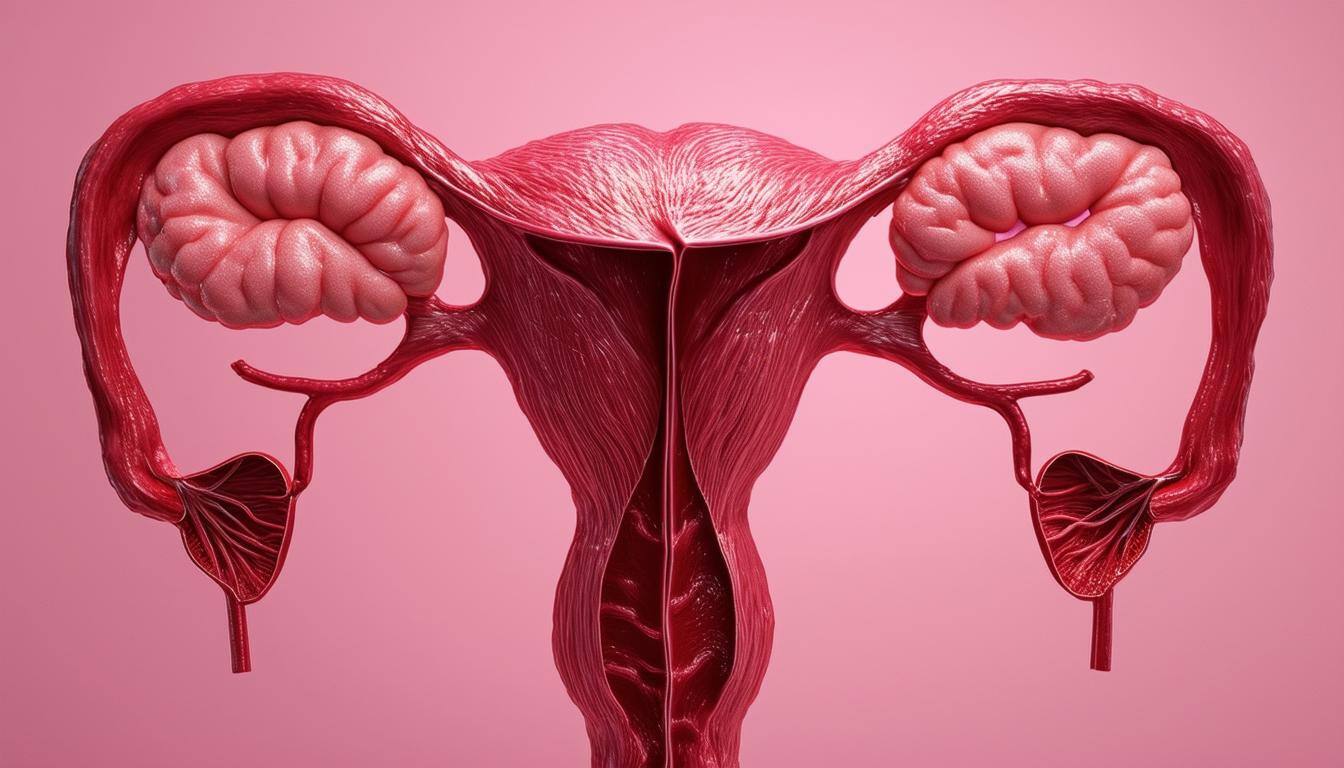Have you ever heard of PCOS and PCOD but weren’t sure what sets them apart? You’re not alone! While both affect hormone balance and reproductive health, they have different impacts on the body. From irregular periods and weight gain to anxiety and mood swings, these conditions can be overwhelming, but with the right approach, they can be managed. Let’s dive into what makes them different and how you can take charge of your health!
PCOD vs PCOS: Understanding The Key Difference
Despite their frequent interchangeability, PCOD (polycystic ovarian disease) and PCOS (polycystic ovary syndrome) are two separate disorders that have different effects on women's reproductive health. Although they both affect the ovaries and result in hormonal abnormalities, their severity and overall impact on health differ.
- When the ovaries generate too many immature or partially formed eggs, cysts grow and PCOD occurs.
- About 10% of women globally are impacted, and it can cause irregular menstrual cycles and problems with conception.
- PCOS is a more complicated hormonal condition brought on by high amounts of androgen, or male hormone, which disrupts ovulation and the balance of hormones in the body
- PCOS is typically more severe and is associated with a higher risk of long-term health issues, such as type 2 diabetes and heart disease, even though the two disorders share symptoms, including irregular periods, weight gain, and trouble conceiving.
- Due to its extensive effects on physical and mental health, PCOS, which affects 8–13% of women of reproductive age, is regarded as a serious public health concern[1].
The Impact of Hormonal Imbalance.
A hormonal condition known as polycystic ovary syndrome (PCOS) impacts the body's normal processes, especially those of the ovaries and endocrine system. Its main characteristics are insulin resistance, an imbalance between follicle-stimulating hormone (FSH) and luteinizing hormone (LH), and an excess of androgens (male hormones like testosterone).
These hormone imbalances bring on many symptoms. Acne, excessive hair growth, and thinning or loss of hair are all consequences of elevated androgen levels. Because insulin resistance forces the body to produce more insulin, weight gain may ensue from the increased testosterone production. In the meantime, the ovaries cannot routinely release eggs due to the imbalance between LH and FSH, which disrupts the usual menstrual cycle. On ultrasonography, follicles seem "polycystic" because they collect in the ovaries rather than developing and releasing. Ovulation thus becomes erratic or stops altogether, resulting in irregular or nonexistent menstrual cycles and possible difficulties with conception[2].
PCOS often creates a cycle in which these factors reinforce one another: insulin resistance increases androgen levels, which further disrupts ovulation, exacerbating hormonal imbalances. If left untreated, PCOS can result in long-term health issues like heart disease, type 2 diabetes, and mental health issues like depression and anxiety.
However, medication, lifestyle modifications, and regular monitoring can effectively control PCOS. Appropriate medical care, consistent exercise, and a healthy diet can help regulate hormone levels, reduce symptoms, and lower the risk of other PCOS-related health problems . The more we understand how PCOS affects the body, the better we can treat it and improve overall health[3].
The Mental Health Burden Of PCOS
The mental health of women is significantly impacted by Polycystic Ovary Syndrome (PCOS), a primary global health concern. PCOS is a significant burden on women's health, affecting 8–13% of women of reproductive age globally, or over 110 million people. According to a 2019 study conducted in Washington state, 5.2% of women between the ages of 16 and 40 had PCOS.
The mental health implications of PCOS are striking, with affected women being 2.79 times more likely to be diagnosed with depression and 2.75 times more likely to develop anxiety disorders. The prevalence of anxiety among women with PCOS ranges from 28% to 39%, while depression affects 11% to 25%. The psychological discomfort levels of women with PCOS are alarmingly greater across a variety of mental health conditions, and they are frequently on par with those of female psychiatric patients[4].
Additionally, the condition is associated with a higher risk of suicide attempts, with a frequency of 3.0% against 0.3% among matched controls. An additional $4.2 billion is spent on healthcare each year in the USA alone as a result of PCOS-related mental health problems. Up to 70% of PCOS cases go undetected despite their impact and prevalence, indicating a severe lack of awareness and access to healthcare. These statistics highlight the critical need for all-encompassing care that takes into account the psychological as well as the physical components of PCOS to enhance the lives of millions of impacted women worldwide[5].

Breaking The Stigma: Addressing Women's Mental Health Needs
To ensure that women receive the care and support they require, the stigma linked with mental health must be lessened. Many women with mood disorders, anxiety, and depression won't seek therapy because they don't know about their disease or are afraid of rejection. Women find it more challenging to get the proper treatment for conditions like postpartum depression, PCOD, and mood swings associated with menopause because these conditions are frequently disregarded or ignored.
Better education, more candid discussions, and readily available mental health care are all necessary to solve this. A more supportive atmosphere can be produced by promoting women's candid conversations about their mental health, incorporating mental health screenings into standard medical care, and raising awareness of gender-specific mental health issues. Providing workplace mental health support, offering affordable therapy options, and promoting self-care can further empower women to prioritize their well-being and seek help without fear of stigma.
Practical Tips For Managing PCOS And Mental Health
It takes a holistic approach that prioritizes both physical and mental wellness to properly manage polycystic ovarian syndrome (PCOS). The following is a summary of some efficient natural strategies to enhance mental well-being and lessen PCOS symptoms:
Follow a PCOD-Friendly Diet- A balanced diet plays a significant role in managing PCOS symptoms. Eating whole, nutrient-dense foods helps regulate blood sugar levels and reduce inflammation, both of which impact mood and mental health.
- Avoid processed foods and refined sugars to prevent insulin spikes that can contribute to anxiety and mood swings.
- Make use of complex carbohydrates, such as those in whole grains, fruits, and vegetables, to support steady blood sugar levels and long-lasting energy.
- Include foods that reduce inflammation, such as almonds, leafy greens, and fatty fish, as these promote mental clarity and hormonal balance.
Engage in Regular Exercise
One of the best strategies to address PCOS and mental health is to exercise. Exercise helps balance hormones, control insulin, and release feel-good endorphins.
- Aerobic exercises like walking, jogging, and swimming can reduce stress and promote emotional well-being.
- Strength training helps manage weight and lowers androgen levels, improving self-esteem and confidence.
Yoga and mindfulness-based exercises help reduce cortisol (the stress hormone), which is often elevated in women with PCOS.
Reduce Exposure to Endocrine Disrupting Chemicals (EDCs)
Hormone-disrupting chemicals found in plastics, skincare products, and pesticides can worsen PCOS symptoms and mental health issues. Reducing exposure to these toxins can help balance hormones and improve emotional stability.
-
Use glass or stainless-steel containers instead of plastic for food storage.
-
Switch to natural skincare and cosmetic products to minimize exposure to harmful chemicals.
-
Choose organic produce whenever you can to cut back on pesticide use
Prioritize Stress Management
Chronic stress can worsen PCOS symptoms and increase anxiety, depression, and mood swings. Implementing stress-reducing practices can significantly improve overall well-being.
-
Deep breathing techniques and meditation can promote the nervous system.
-
Being in nature enhances mood and lowers cortisol levels.
-
Setting aside time for hobbies and self-care reduces mental fatigue and promotes a positive mindset.
Adopt a Healthy Sleep Pattern
Many women with PCOD experience poor sleep, which can lead to irritability, anxiety, and difficulty concentrating.
- Establish a regular sleep schedule by going to bed and waking up at the same time every day.
- Avoid screen time before bed to prevent disruptions in melatonin production.
- To encourage sound sleep, establish a calming bedtime ritual, like reading.
Try Supplements
Certain natural supplements have been shown to support hormonal balance and mental health in women with PCOS.
-
Inositol improves insulin sensitivity and helps regulate mood.
-
Chromium supports healthy blood sugar levels, reducing mood swings and energy crashes.
-
Cinnamon helps improve insulin resistance and can aid in emotional stability.
-
Vitex (Chasteberry) may help balance estrogen and progesterone levels, reducing symptoms of PMS and mood swings.
Consider Acupuncture
Acupuncture, a type of alternative medicine, can help lower stress, improve how the body uses insulin, and balance hormones. It can also promote better sleep and relaxation, which may reduce anxiety and depression related to PCOS.
Making lifestyle changes and trying holistic approaches can help women with PCOS feel better both physically and mentally. The key to managing symptoms and improving overall well-being is having a plan that’s personalized and consistent[6].
Conclusion
PCOS and PCOD can be tough to deal with, but with the right information and care, they’re manageable. Eating well, staying active, getting the right medical support, and taking care of your mental health can make a big difference. Even small steps add up, so start where you can and keep going!















